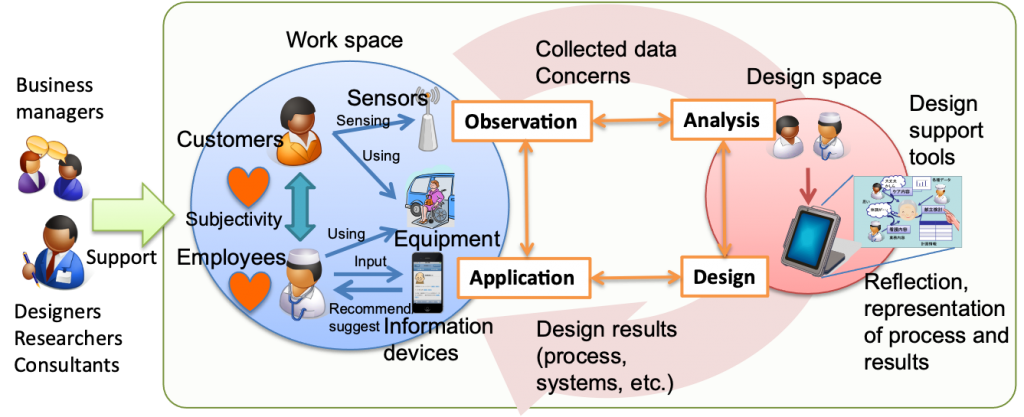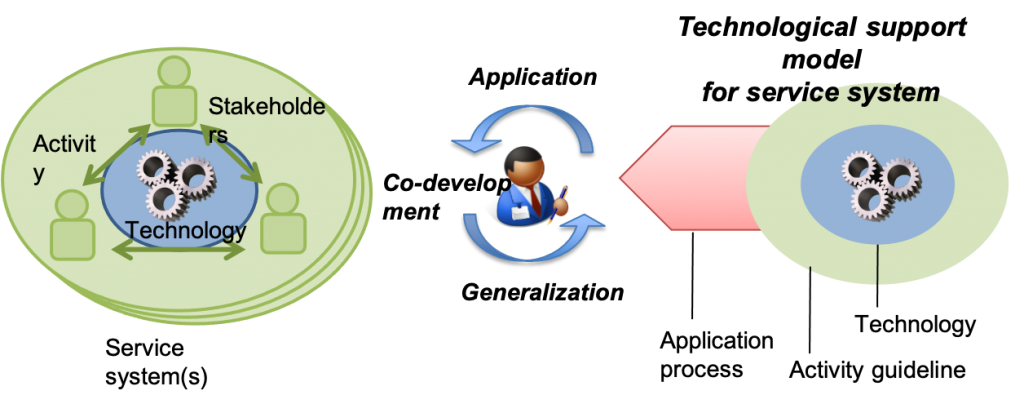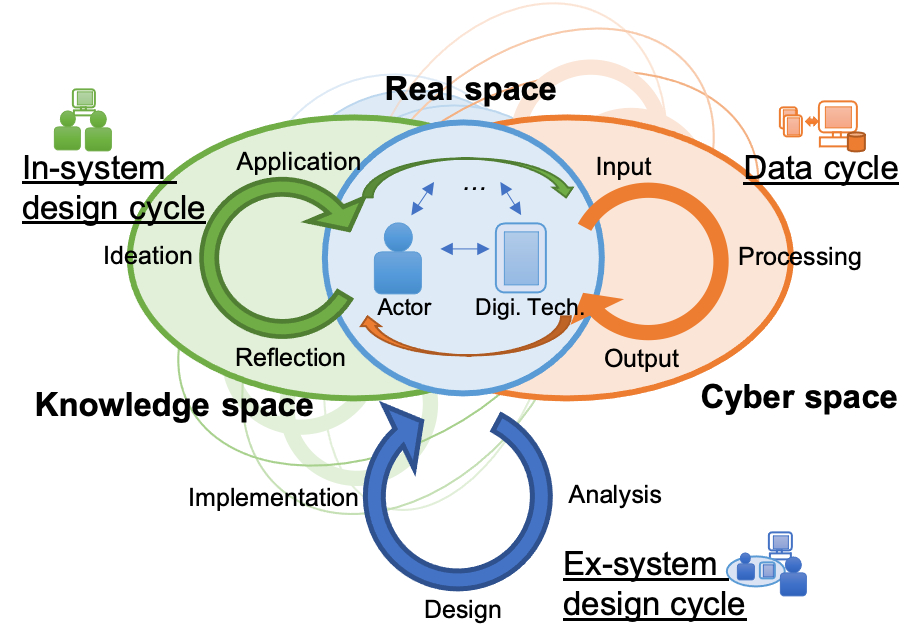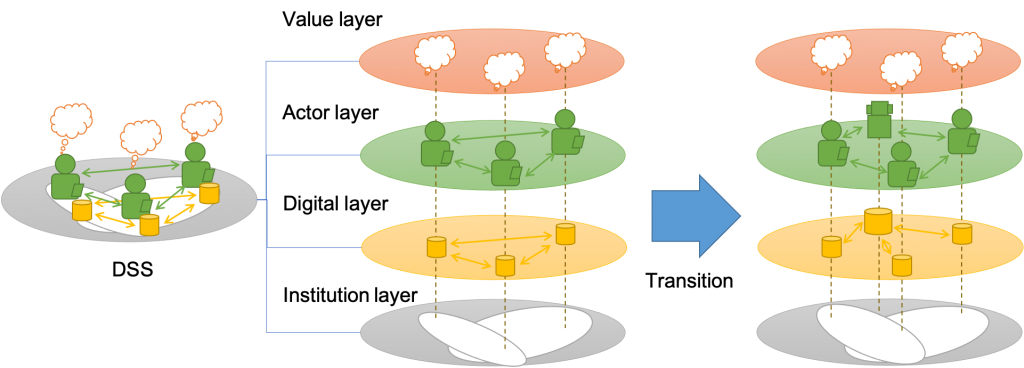Employee-driven innovation by design and its technological support
Frontline service employees are no longer workers only doing routine tasks, but change-makers perceiving changing needs and situations and innovating a service system.This study suggests a design approach to promote employee-driven innovation / workplace innovation with the support of information technology.


Technological support model for service systems: diffusing innovation
A large number of social experiments / Proof of Concepts (PoC) of new digital services have been conducted, but there is still a barrier to diffusing such attempts. This study illustrates an approach to package a generalized set of technology and operation for diffusing innovation based on the result of PoC.
Human-technology cooperation in service systems: an evolutionary design approach
Digital technology such as social robot, Internet of Things (IoT) and data analytics, and “digital twin” realized by these technologies is innovating service systems, but its application is limited by technological / economical / social factors. This study proposes an evolutionary design approach for better cooperation of human and technology in service systems, taking the limitation of digitalization into account.


Socially-conscious service system design in the era of digital transformation
The concern toward negative consequences of digitalization is growing, such as privacy issues and the excessive intervention toward human decision-making. In addition to social and ethical principles on digital technology such as AI, a concrete methodology for R&D and social implementation taking such concerns into consideration is anticipated. This study aims at developing a new approach of service system design which takes social and ethical impacts of digital technology into consideration.